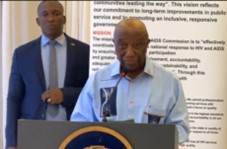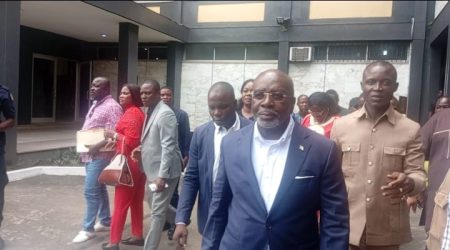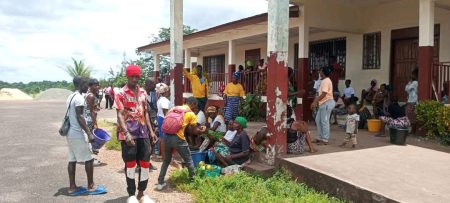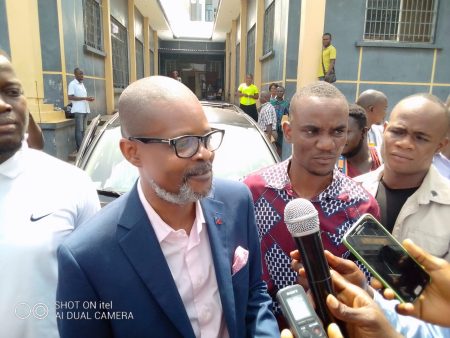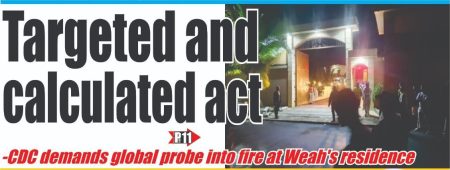President Joseph Nyuma Boakai of Liberia has ignited a renewed national drive for domestic resource mobilization in the fight against HIV/AIDS with a substantial contribution of US$50,000 and two new pickup trucks to the National AIDS Commission’s 2025 Annual Fundraising Dinner. This significant gesture underscores the President’s commitment to supporting the over 34,000 Liberians living with HIV and emphasizes the urgent need for the nation to assume greater responsibility for its HIV response in the face of declining international donor support. President Boakai’s contribution serves as a powerful symbol of his administration’s dedication to ensuring that those affected by HIV/AIDS are not abandoned as donor funding dwindles, reinforcing the message that their well-being remains a national priority.
The National AIDS Commission, tasked with coordinating the country’s HIV/AIDS response, launched its 2025 fundraising campaign under the theme “Sustaining the National HIV Response through Domestic Resource Mobilization.” This initiative aims to raise US$250,000 to bolster and maintain the country’s fight against the epidemic, a goal that signifies a critical shift towards self-reliance and sustainable funding mechanisms. The Commission’s chairperson, Dr. Cecelia J. Nuta, emphasized the importance of national ownership of the HIV response, highlighting the need for sustained funding to support the Commission’s crucial role in policy direction, coordination, and oversight. This call for domestic resource mobilization reflects a growing awareness of the limitations of relying solely on external funding and underscores the imperative for Liberia to take charge of its own HIV response.
The fundraising event, held at the Ministerial Complex in Congo Town, attracted a diverse assembly of key stakeholders, including high-ranking government officials, legislators, international development partners, civil society organizations, and private sector representatives, demonstrating the collaborative nature of the effort. The presence of such a diverse group signals a shared understanding of the importance of a multi-sectoral approach to combating the epidemic. The gathering served as a platform to launch the ambitious fundraising drive and underscore the collective responsibility in sustaining the national HIV response. The inclusive nature of the event signifies a broad-based commitment to tackling HIV/AIDS and emphasizes the importance of partnership and collaboration in achieving national goals.
Commissioner Tracy Newon Pency-Kyne, responsible for Partnership and Resource Mobilization at the AIDS Commission, outlined how the targeted US$250,000 would be strategically allocated to support critical programs focused on prevention, stigma reduction, community education, and treatment services. These key areas represent vital components of a comprehensive HIV response, targeting not only the medical aspects of the disease but also the social and educational aspects that play a significant role in prevention and care. The emphasis on these areas underscores the Commission’s commitment to a holistic approach that addresses both the immediate needs of those living with HIV and the broader societal factors that contribute to the epidemic’s persistence.
The fundraising dinner employed a novel “Chair Purchases” initiative, encouraging attendees to pledge financial support by symbolically purchasing seats at the event. This creative approach to resource mobilization served as a tangible way for individuals and institutions to demonstrate their commitment to the cause. It fostered a sense of shared responsibility and provided a platform for attendees to contribute directly to the fundraising effort. This innovative strategy goes beyond traditional fundraising methods and encourages active participation from all sectors of society, highlighting the collective effort required to sustain the national HIV response.
While Liberia has made notable progress in reducing HIV prevalence and expanding access to treatment in recent years, officials caution that these gains are fragile and could be reversed without sustained financial support. The country continues to grapple with significant challenges, including pervasive stigma, limited testing capacity, and low public awareness, all of which hinder efforts to control the epidemic. President Boakai’s contribution is seen as a catalyst, inspiring further commitments from governmental bodies, the business community, and the diaspora. The sustained mobilization of resources is crucial to consolidating the progress made and addressing the remaining challenges that impede Liberia’s fight against HIV/AIDS. The ongoing fundraising campaign, coupled with the President’s significant contribution, aims to secure the necessary resources to ensure the long-term sustainability of the national HIV response and build a future free from the burden of this epidemic. The campaign is expected to continue throughout the year, engaging both local and international partners in a collective effort to achieve a Liberia where the HIV response is nationally owned, led, and sustained, leaving no one behind.





